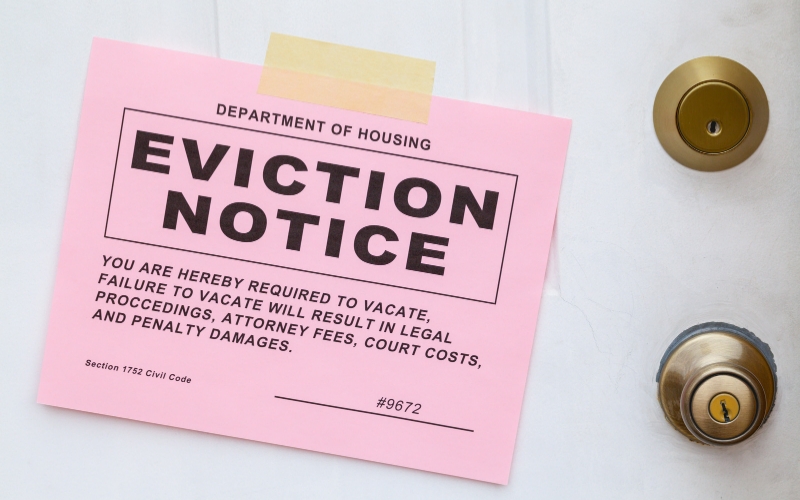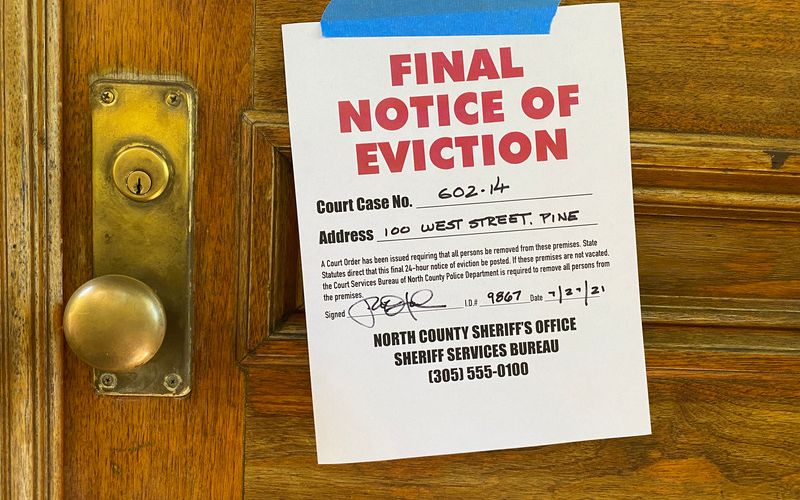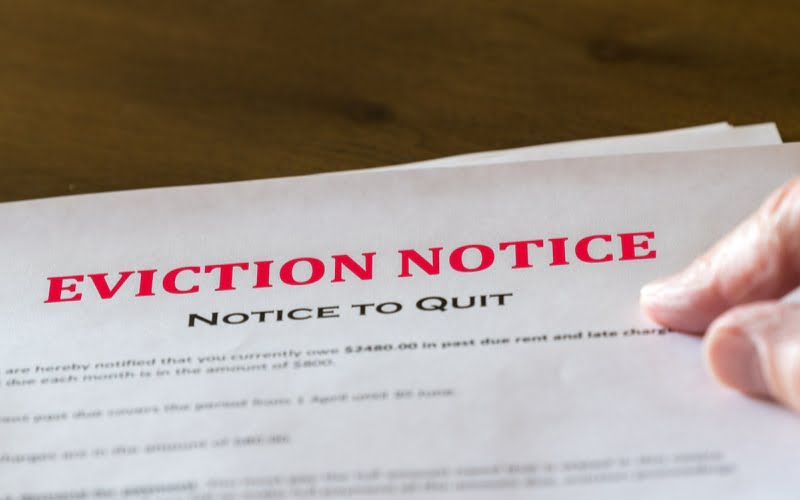Last Updated on May 22, 2025 by Kelvin Nielsen
Are you looking to evict a tenant who has no lease and doesn’t pay rent in Georgia, and wondering what to do? If so, this blog has you covered; here’s everything you need to know.
Under the Georgia landlord-tenant law (GA Code Title 44 Chapter 7), property owners have the right to evict a tenant under certain situations. Including: when the tenant fails to pay the agreed rent, or when the tenant doesn’t have a lease.
In either case, you must serve the tenant with a proper notice before escalating the eviction process further.
Please note, however, that you must not engage in any self-help eviction methods. For example, locking out the tenant, removing their personal belongings, or shutting down their utilities. It’d also be unlawful to threaten the tenant into moving out.
To have a successful eviction, the tenant must either move out on their own (after serving them with an eviction notice) or you must obtain a court order via the courts.
With that in mind, here’s everything to know in this regard.
Also Read: How to Evict a Family Member in Georgia
Georgia Eviction Laws No Lease No Rent: Step-by-Step Process
This is the process you must follow to remove the resident from your Georgia rental property.
First and foremost, you’ll need to serve the tenant with an eviction notice.
This will formally begin the eviction process against the tenant. But, please note that you must serve them the appropriate notice and do so properly.
Under Georgia law, there are several eviction notices landlords can use during an eviction. You must, therefore, make sure you use the appropriate one to have a successful eviction. Choosing the wrong eviction notice type can make the process delay or stop.
Since the tenant doesn’t have a lease with you and doesn’t pay rent, you’ll need to serve them with a 60-Day Notice to Vacate. This will allow the tenant up to 60 days to move out.
If the tenant moves out on their own during this notice period, great! No further action from you will be necessary. However, if the tenant doesn’t move out, you can escalate the eviction further by filing a lawsuit.
Generally speaking, expect the process to take between one and three months to complete. It can take a bit longer if the tenant decides to fight their eviction by filing an answer with the court.
The following are some defenses the tenant can provide to the court to stop or delay their eviction.
- The tenant does have a lease and has paid rent. In such a case, this would nullify the 60-Day Notice to Vacate you had served them. Even worse, the tenant could sue you for wrongful eviction.
- You didn’t serve the eviction notice appropriately. Georgia law specifies that an eviction notice be posted, in a sealed envelope, to the door of the property.
- The eviction notice didn’t contain the right information. Eviction notices must contain relevant information, such as the reason for the eviction, the effective date of eviction, and what the tenant must do within the notice period.
But if you did everything right from the beginning, there will be a hearing. And if the judgment is in your favor, the court will issue you a Writ of Possession. This will be the tenant’s final notice to leave.
If the tenant still fails to leave at this point, the sheriff will return and forcefully kick them out and allow you to change the locks.
Conclusion
There you have it. Everything to know when it comes to Georgia eviction laws when a tenant doesn’t have a lease and doesn’t pay rent. If you still have a question or would like expert advice on the process, kindly seek professional legal services.
Sources: GA Code Title 44 Chapter 7
Disclosure: The content herein isn’t a substitute for advice from a professional attorney. It’s only meant to serve educational purposes. If you have a specific question, kindly seek expert attorney services.

Hi, I’m Kelvin Nielsen, an experienced landlord and accomplished real estate lawyer. My focus is on answering your questions about renting in the hopes of making your life as a renter or a landlord a bit easier.







